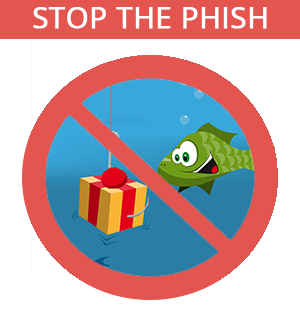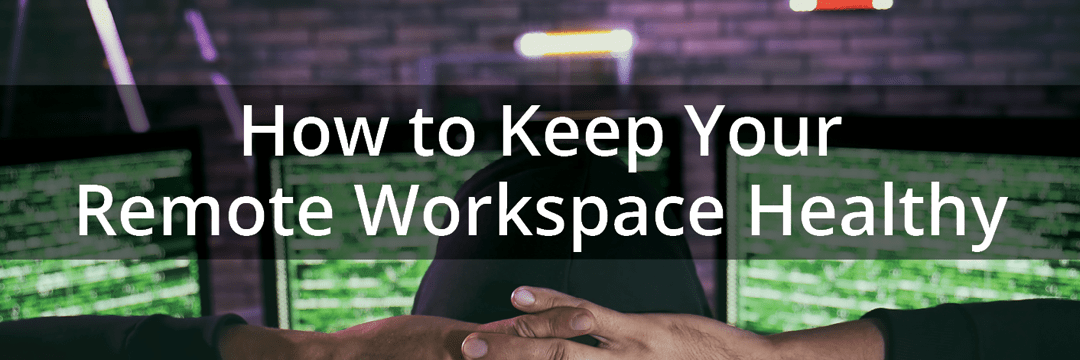It takes a lot more than washing your hands
Amid the recent COVID-19 outbreak, companies around the globe have implemented mandatory remote work policies and procedures to limit the spread of the virus. In doing so, it is imperative that you keep your home and workstation clean to protect yourself and your family from the invisible enemy — the coronavirus.
Whether you’re a working from home for the first time or have been doing this for years, here’s what you need to do to keep your home office and workspace clean and your family healthy.
Clean and sanitize your workstation
While transmission of COVID-19 from person-to person presents a much greater risk, touching infected surfaces can pass the virus, too. Research from the National Institute of Health shows that the virus can live on surfaces for a lengthy period: from up to 24 hours on cardboard to up to two or three days on plastic and stainless steel.
The CDC recommends that you clean and disinfect frequently touched surfaces at least once daily, even if nobody in your home is sick. For most work areas, this includes desks, chair, phones, keyboards, mouse, doorknobs, tables, doorknobs, light switches, and handles.
Device Cleaning
Considering how often we come into contact with phones, computers and their peripherals (keyboard, mouse, printer, etc.), it should come as little surprise that they are a convenient haven for bacteria and other microbes. Phones, laptops, and computers, which are an integral part of our office spaces, breed microbes.
At the beginning of each work shift, you should unplug and disinfect your computer display, keyboard, mouse, trackpad, and entire exterior with a soft cloth and alcohol solution with at least 70% alcohol content. Be sure to pay special attention to the mouse (top, sides, and bottom), the keys on your keyboard, and the exterior of the keyboard.
The same alcohol solution can be used to clean your smartphones. Make sure you pay special attention to the screen, the buttons, and anywhere dust and pocket lint tend to get trapped. Also make sure you remove any case that’s on your phone or tablet, clean underneath, put it back on, and clean the outside.
It is important to note that the alcohol solution should never to sprayed or poured directly onto the devices. Instead, you should moisten the soft towel with the solution and then wipe down the devices.
Environmental Cleaning
Routinely clean and disinfect all frequently touched surfaces in the home, such as countertops and stair rails, and light switches. In your home office, this might mean your desk, chair, and doorknobs. Since your office space resides within your home, it is important to pay attention to areas in your home outside of your immediate workspace such as bathrooms and kitchens.
If surfaces are dirty, they should be cleaned using a detergent or soap and water prior to disinfection. You can disinfect surfaces in your home and around your work area using disinfecting wipes. The U.S. Environmental Protection Agency has suggested a list of disinfectants that are effective against the coronavirus and many other pathogens.
To effectively rid your work environment from pathogens, it is important to first clean, then disinfect:
- First, clean the surfaces, removing any contaminants, dust, or debris. You can do this by wiping them with soapy water (or a cleaning spray) and a hand towel.
- Then apply a surface-appropriate disinfectant. The quickest and easiest way to do this is with disinfecting wipes or disinfectant spray.
- Finally, wash your hands with soap and water.
Wash your hands often
You may have heard it a million times by now but the Center for Disease Control (CDC) suggests that the best way to reduce your risk of contracting or transmitting the novel coronavirus is to wash your hands often with soap and water. Wash your hands after you cough, sneeze, touch your face, use the restroom, or leave one place for another. The World Health Organization (WHO) has provided details on how to properly wash your hand for at least 20-seconds, which includes rubbing and lathering the backs of the hands, between your fingers and under your nails. Avoid touching eyes, nose, or mouth with unwashed hands.
Use alcohol-based hand sanitizer if you don’t have immediate access to soap and water. Hand sanitizer, however, is no substitute for washing your hands. If soap and water are not available and hands are not visibly dirty, an alcohol-based hand sanitizer that contains at least 60% alcohol may be used. However, if hands are visibly dirty, always wash hands with soap and water. It is always best to wash with soap and water after a few pumps of sanitizer - gels won't clean your hands like washing them will. Place hand sanitizers in multiple locations in the house, including your work area to encourage hand hygiene.
By following these guidelines, you can do your part to keep yourself and your family healthy.
For more information,
Basic protective measures against the new coronavirus
Clean hands protect against infection
Disinfectants for Use against SARS-CoV-2
Disinfecting your home if someone is sick
Get your home ready for the coronavirus disease

We Can Secure Your Remote Infrastructure
IT managers must prioritize cybersecurity as they transition employees to work remotely. This massive shift in operations to a less secure home environment poses significant risks that must be managed.

Get a curated briefing of the week's biggest cyber news every Friday.

Turn your employees into a human firewall with our innovative Security Awareness Training.
Our e-learning modules take the boring out of security training.
Intelligence and Insights

From Compliance to Advantage: Using PCI 4.0 Certification to Boost Business Value

5 Major Cybersecurity Risks Banks and Financial Organizations Face


